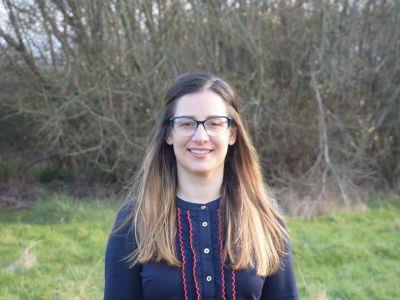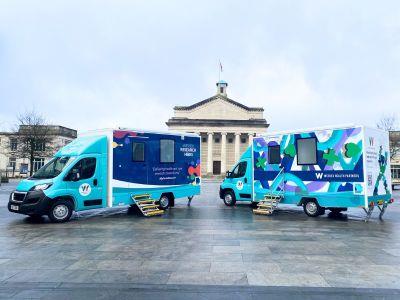Call to arms - design new ways of working into study protocols

How will the changing landscape of trial delivery produce opportunities for better, more accessible clinical trials?
This was the question posed in the most recent webinar delivered by pharmaphorum, which has nearly 30,000 subscribers. More than 200 people watched the live discussion.
Kirsty Gladas, Senior Research Nurse Manager for CRN Wessex, was invited to join the panel. Much of the discussion centred around the growing role of Direct Delivery Teams (DDT), now based in every clinical research network in the country. These teams deliver research in non-NHS settings including care homes, schools, hospices and prisons. Kirsty has also been involved in Wessex Research Buses which will open up research to many new people and communities.
Pharmaphorum’s Louise McLennan, who hosted the session, said: “The UK's clinical research landscape is evolving as we explore new ways to bring studies directly to patients. Learning from experts like Kirsty, who can offer valuable insights into the opportunities and challenges of these new delivery models, can inspire us to spearhead similar initiatives that ensure everyone who wants to participate in advancing research has the opportunity to.”

During the session, Kirsty (pictured above) issued a “call to arms” for study sponsors and industry to engage as early as possible, to ensure deployment of DDTs is factored into study design stage. “Let’s look at protocols through a different lens, right from the beginning,” she said. “By bringing us in early, we can use our networks and community connections to help reach the right people.”
Jamie Calderwood, Lead Nurse for Agile and Direct Delivery Teams in Yorkshire and Humber, argued research is shifting to a more community-based approach, and making it as convenient as possible for people should be prioritised. “There’s a real reluctance to come to clinical locations. If people are expected to take part in studies as an extra, on top of all their busy day-to-day pressures - there’s an attitude of, I can’t take anything more on. So, we need to think differently, and go to where the people are.”
Wessex Research Buses will be key to addressing this need - with many sponsors already expressing an interest in using the vehicles, and factoring this into their protocol designs. “Right from the launch event we’ve had a lot of interest in our buses,” Kirsty commented. “The future will be even bigger and better.”

Jo Henry, Delivery Team Matron at NIHR Clinical Research Network Greater Manchester, explained the pandemic was the catalyst for new ways of working. “We really had to think outside the box to meet all these urgent public health studies, and deliver them in car parks across communities, supermarkets and leisure centres. The pandemic really showed us we can work smarter, more efficiently and still get high quality data, and to prioritise under-served communities.”
To catch up with the webinar, watch here. It will be available for the foreseeable future.



